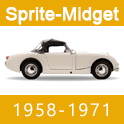| Orig. Posting Date | User Name | Edit Date |
| Sep 3, 2015 04:37PM | jeg | |
| Sep 3, 2015 04:27PM | Dan Moffet | Edited: Sep 3, 2015 04:32PM |
| Sep 3, 2015 07:25AM | Craig | |
| Sep 2, 2015 02:41PM | DRMINI | |
| Sep 1, 2015 09:05PM | Isleblue65 | |
| Sep 1, 2015 07:56PM | Rabbit527 |
|
Total posts: 7075
Last post: Nov 5, 2019 Member since:Apr 25, 2000
|
Cars in Garage: 0
Photos: 0 WorkBench Posts: 0 |

|
As has been said, a plain washer spreads load, specifically the force/pressure applied under a nut or bolt head. On soft metals, wood etc., it serves to distribute the pressure, thereby reducing the risk of deformation of the softer material. But on hard metals like steel it serves a different purpose: The spreading of the load is to reduce the friction between the bolt/nut and the metal surface so that as you torque it up, you are applying torque against the resistance of the threads, thereby achieving the desired tension on the bolt. It acts somewhat like a plain bearing. The hardness of a plain washer is usually less than the bolt/nut.
A "spring" or other lock washer is designed to provide that "slippage" - in one direction only: while being tightened. The ends of a spring lock washer are beveled to bite one way only - against removal. (Google "left hand lock washer"!) For a critical join, one should always use a fresh lock washer, since over time they lose their effectiveness, once removed.
So it stands to reason that putting a plain washer under a lock washer would defeat it.... just as DRMINI and Craig describe. And don't use a right hand lockwasher on a left-hand bolt. Left-hand threaded fasteners were/are used where the torque on the fastener would have the tendency to tighten it during use. Anyone who's had to search through their grandfather's bolt collection to find leftie wheel bolts for a 1937 Dodge would understand that! (BTDT! Grandpa had about 40 tobacco cans full of all sizes and shapes.)
Interesting, I'd never thought of that - learned something new today!
The peasants are revolting...
"Gone with the Wind" - a brief yet moving vignette concerning lactose intolerance
|
Total posts: 9542
Last post: Apr 18, 2024 Member since:Aug 14, 2002
|
Cars in Garage: 0
Photos: 0 WorkBench Posts: 0 |

|
As has been said, a plain washer spreads load, specifically the force/pressure applied under a nut or bolt head. On soft metals, wood etc., it serves to distribute the pressure, thereby reducing the risk of deformation of the softer material. But on hard metals like steel it serves a different purpose: The spreading of the load is to reduce the friction between the bolt/nut and the metal surface so that as you torque it up, you are applying torque against the resistance of the threads, thereby achieving the desired tension on the bolt. It acts somewhat like a plain bearing. The hardness of a plain washer is usually less than the bolt/nut.
A "spring" or other lock washer is designed to provide that "slippage" - in one direction only: while being tightened. The ends of a spring lock washer are beveled to bite one way only - against removal. (Google "left hand lock washer"!) For a critical join, one should always use a fresh lock washer, since over time they lose their effectiveness, once removed.
So it stands to reason that putting a plain washer under a lock washer would defeat it.... just as DRMINI and Craig describe. And don't use a right hand lockwasher on a left-hand bolt. Left-hand threaded fasteners were/are used where the torque on the fastener would have the tendency to tighten it during use. Anyone who's had to search through their grandfather's bolt collection to find leftie wheel bolts for a 1937 Dodge would understand that! (BTDT! Grandpa had about 40 tobacco cans full of all sizes and shapes.)
.
"Hang on a minute lads....I've got a great idea."
|
Total posts: 1059
Last post: Jan 10, 2024 Member since:Feb 25, 1999
|
Cars in Garage: 0
Photos: 0 WorkBench Posts: 0 |

|
I've found that using a lock washer and a flat washer is not a good way to keep a bolt in place. One or the other is fine for what they are intended to do; flat washers spread the load of the bolt head over a larger area and lock washers prevent bolt movement. It's best to use Loctite, or similar stuff, on the bolt threads and a flat washer. And Loctite comes in three strength ratings, so be careful about which you choose!
'72 Morris Mini - 1310cc, K1100 head conversion
|
Total posts: 8645
Last post: Dec 16, 2020 Member since:Oct 27, 2000
|
Cars in Garage: 0
Photos: 0 WorkBench Posts: 0 |

|
I Loctite them, as they tend to come loose even with a new spring washer fitted. The flat washer behind it spins...!
Kevin G
1360 power- Morris 1300 auto block, S crank & rods, Russell Engineering RE282 sprint cam, over 125HP at crank, 86.6HP at the wheels @7000+.
|
Total posts: 3113
Last post: Mar 5, 2021 Member since:Feb 9, 2002
|
Cars in Garage: 0
Photos: 1 WorkBench Posts: 0 |

|
The drive flange to differential nut is torqued to 70 ft lbs.
"I drive a Mini. What are you compensating for?"
|
Total posts: 234
Last post: Apr 6, 2017 Member since:May 31, 2000
|
Cars in Garage: 0
Photos: 0 WorkBench Posts: 0 |

|
Does anyone know if there is a torque spec for the large bolt that holds the drive flange to the output shaft for a Coorper S remote box...
Thanks!




